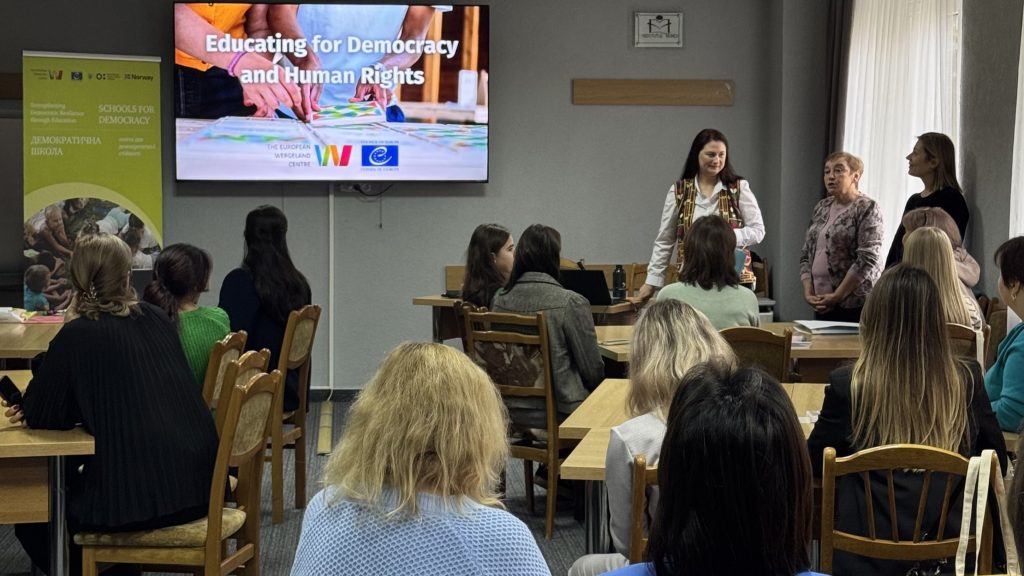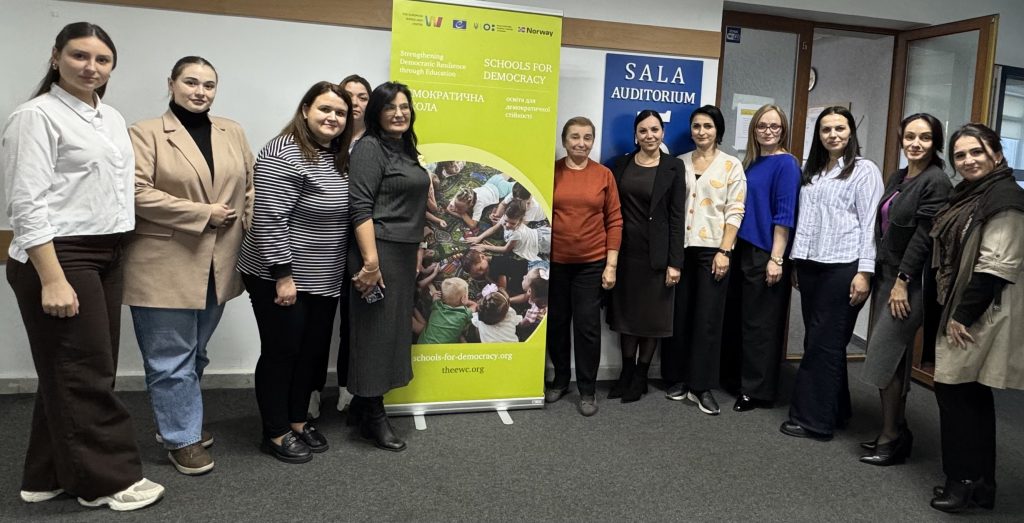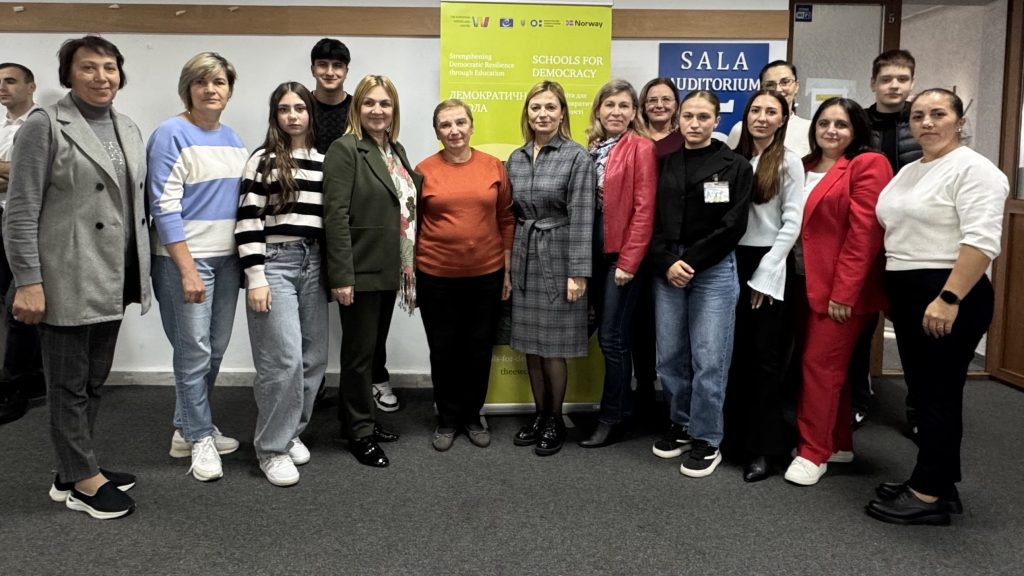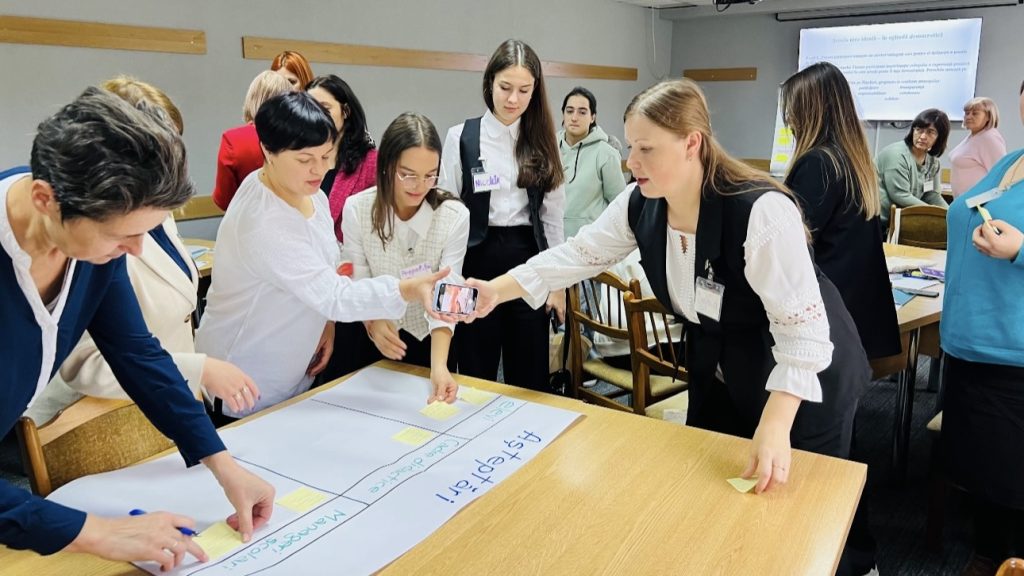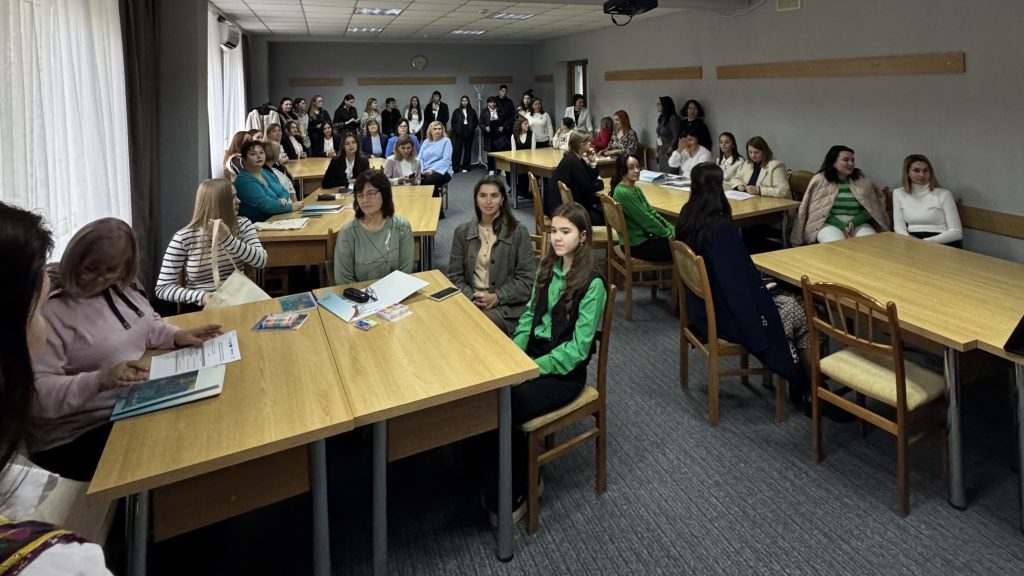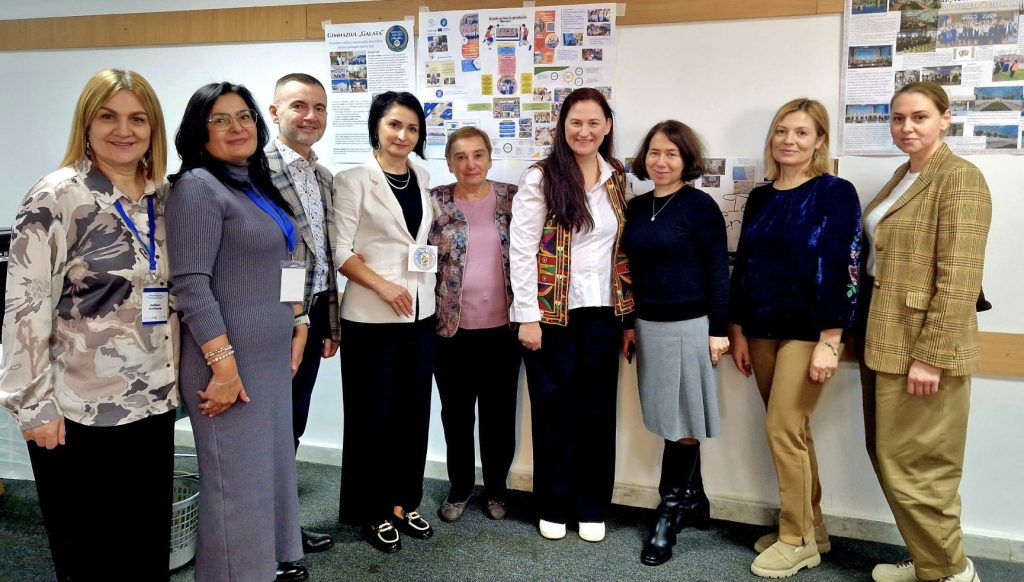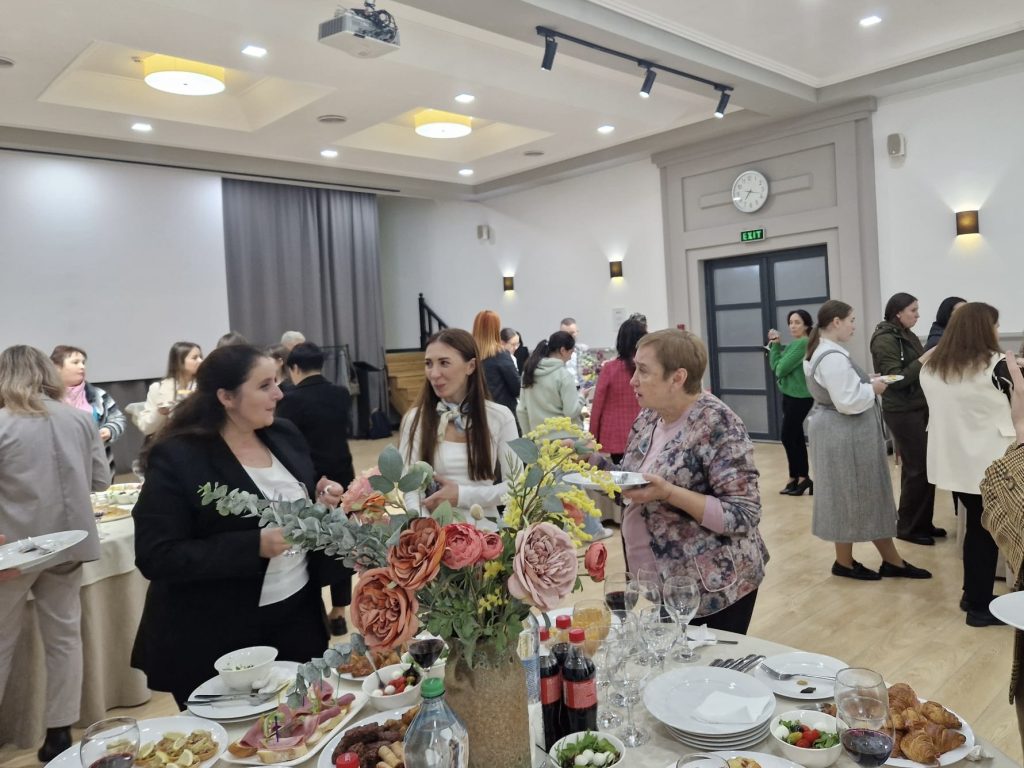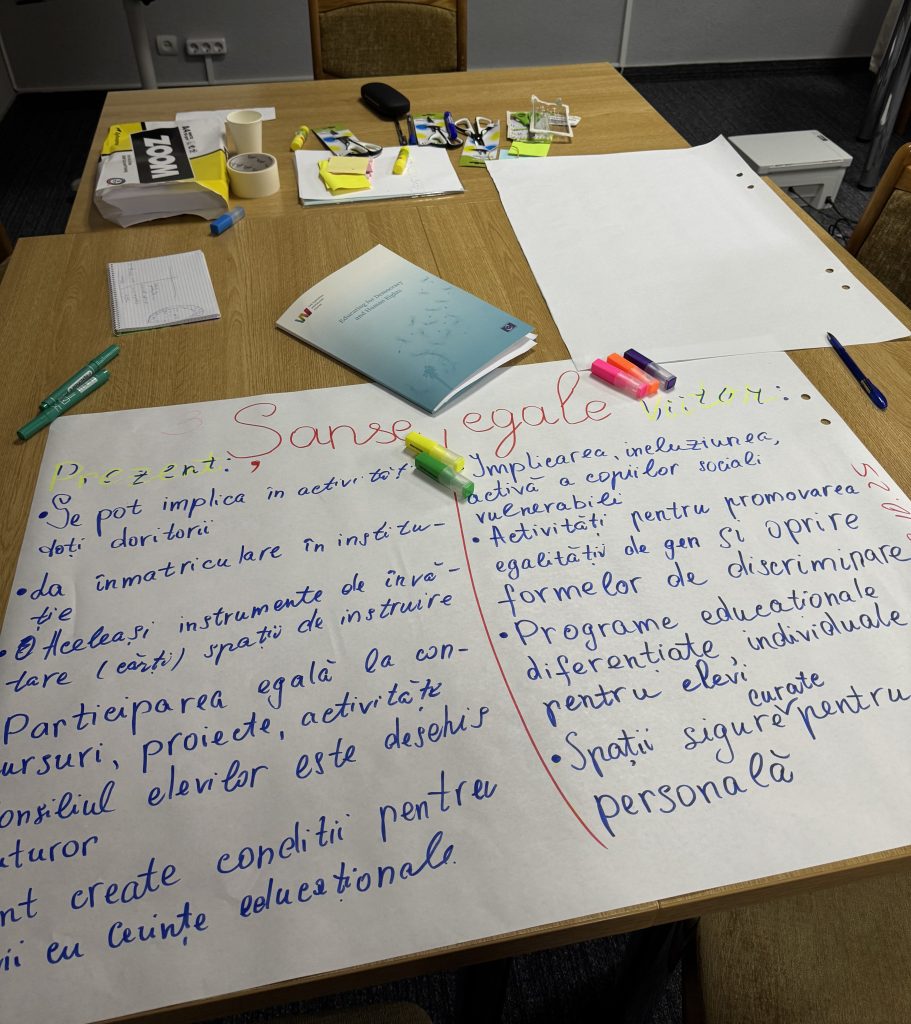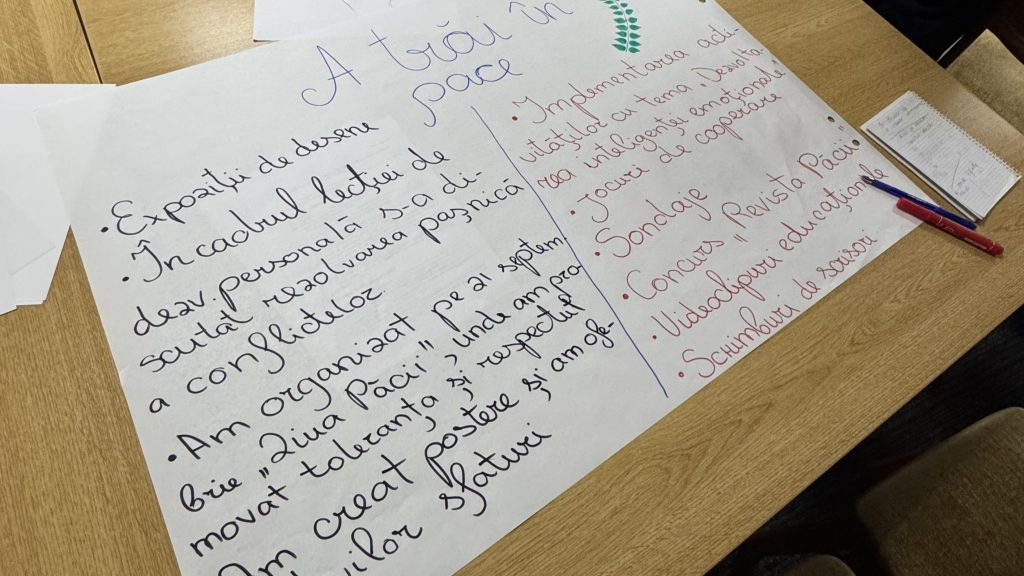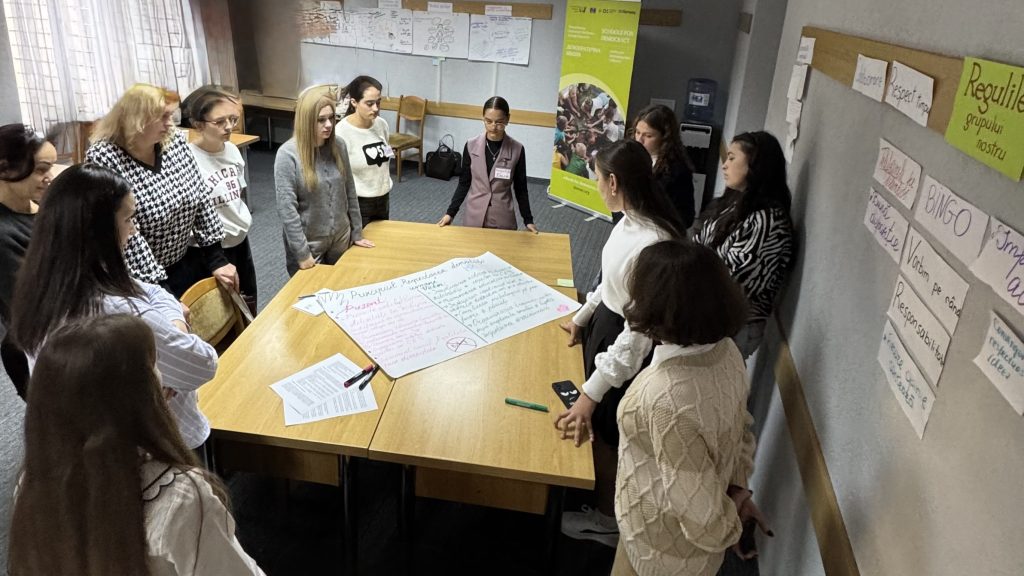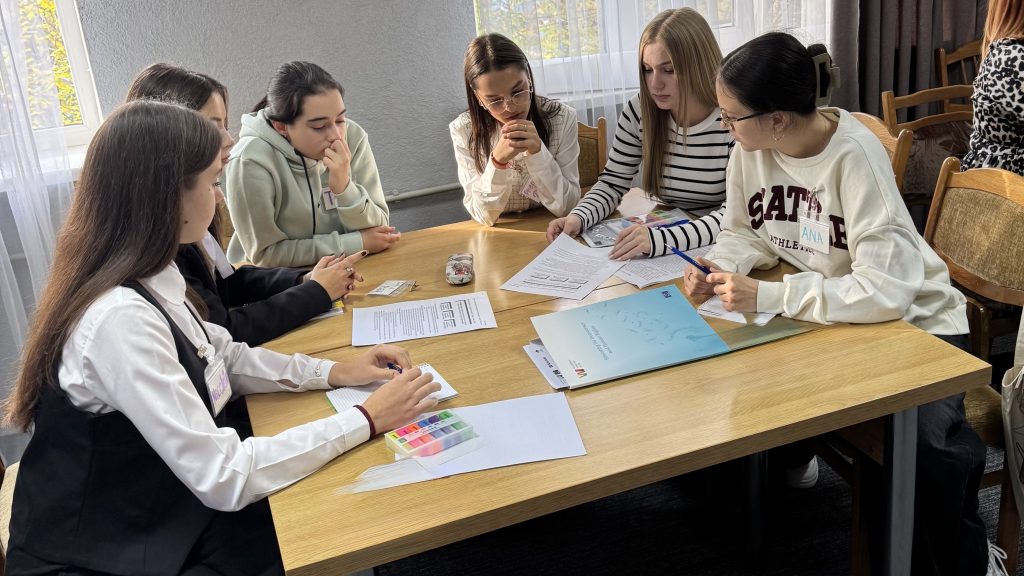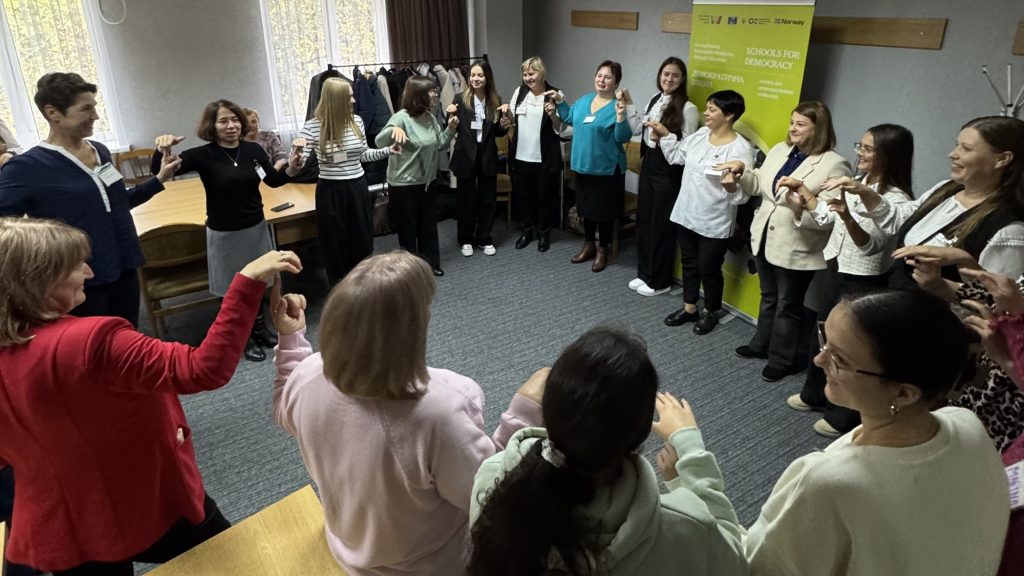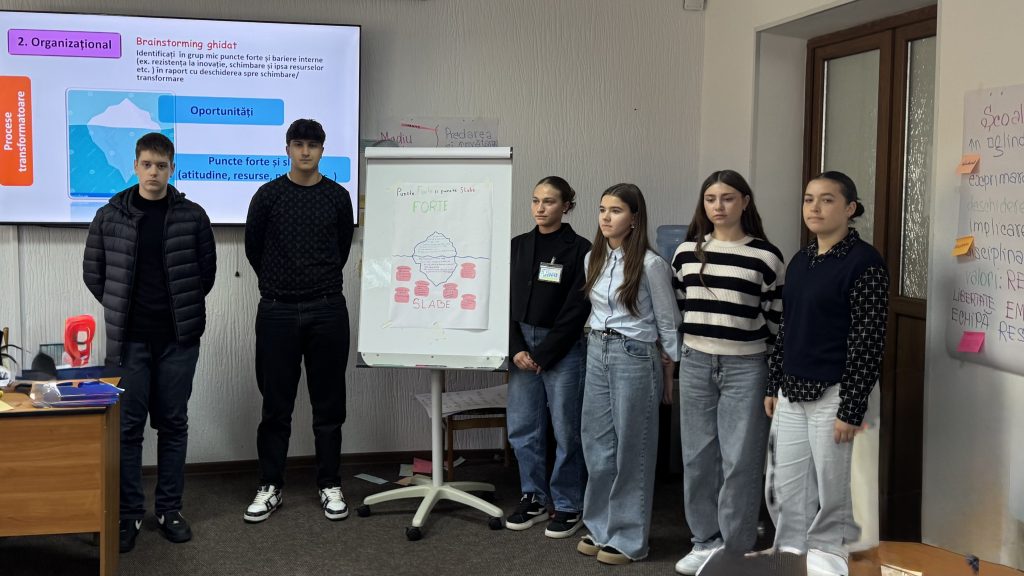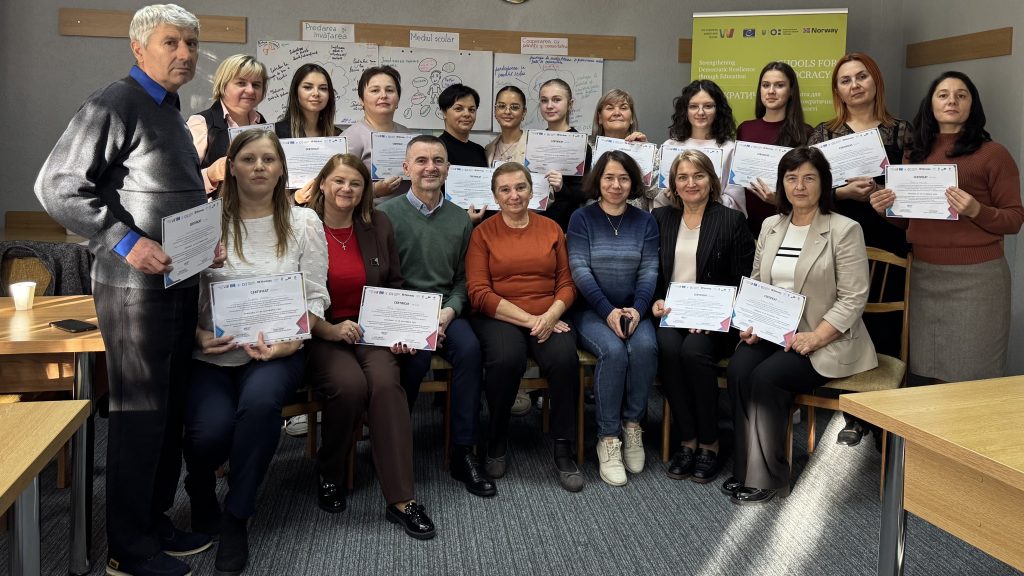18 School Teams from Moldova Joined the “Schools for Democracy” Training Program

Chișinău, 27–29 October 2025
The initial training session of the “Schools for Democracy: Strengthening Democratic Resilience through Education” initiative took place in Chișinău, bringing together 18 school teams from across Moldova. The event was organized by the European Wergeland Centre in collaboration with the NGO “Pas cu Pas” Moldova.
Training for a More Democratic and Inclusive School Environment
Over the course of three days, the selected teams — comprised of school administrators, teachers, and either students or parents — engaged in intensive training on Education for Democratic Citizenship (EDC) and Human Rights Education (HRE).
The sessions were designed to support schools in integrating these principles into daily school life, with the aim of fostering a safer, more inclusive, and participatory educational environment.
Participants explored interactive, learner-centered methods based on Council of Europe resources and developed tailored action plans for their schools. The training focused on topics such as student participation, democratic school governance, anti-discrimination practices, and community engagement.
International Support and a Shared Vision
The training program was honored by the presence of Marta Melnykevych-Chorna, Senior Advisor at the European Wergeland Centre and project manager for the Moldova component. Her presence emphasized the international significance of the initiative and reinforced the commitment of the program partners to support Moldovan schools.
“We are inspired by the strong commitment of school communities across Moldova. Building a culture of democracy in schools means nurturing a generation of young people who are confident, engaged, and prepared to contribute responsibly to democratic society,” said Marta Melnykevych-Chorna.
What Comes Next?
Following this initial training, each team will receive ongoing mentorship, take part in webinars, and implement a local action project in their school community by May 2026. These initiatives will culminate in a final international conference, where schools will share their experiences and celebrate their achievements.
This program aims to build civic competences among students and educators alike, while strengthening democratic participation and social cohesion within school communities.
